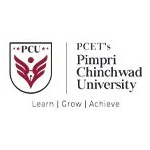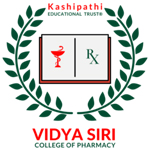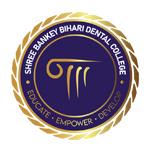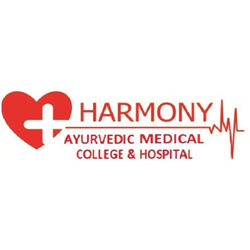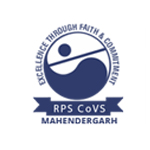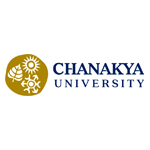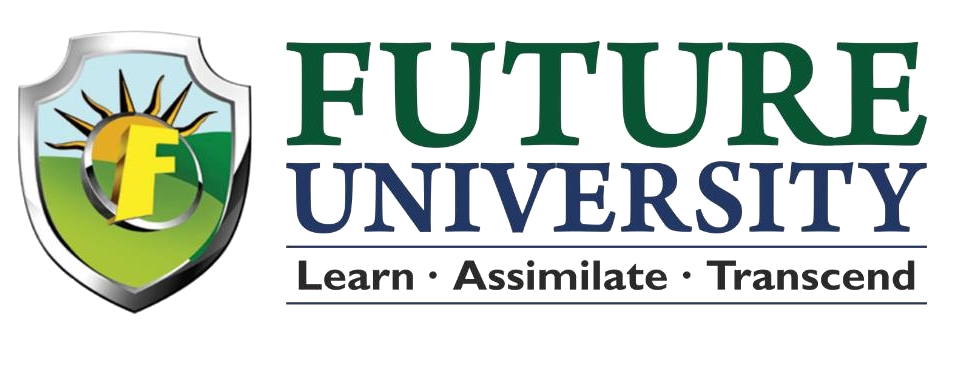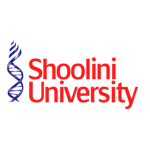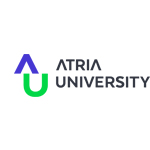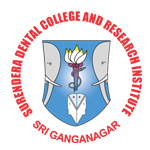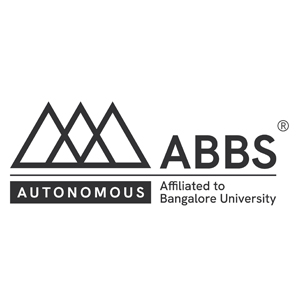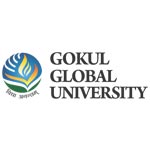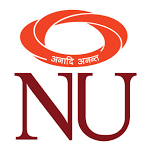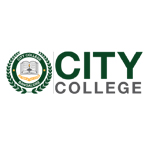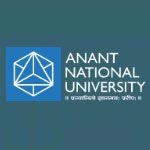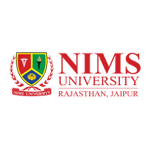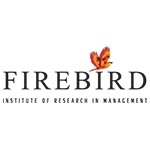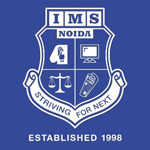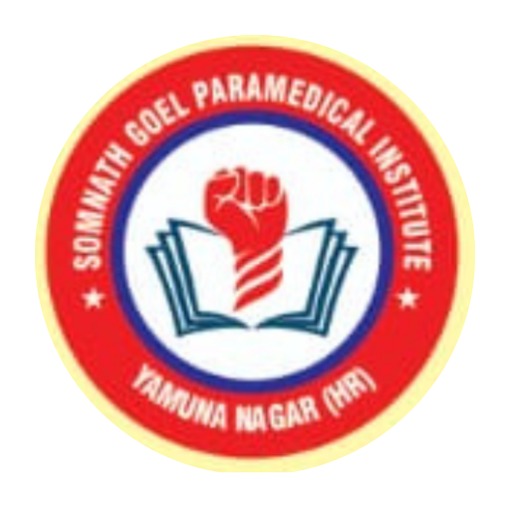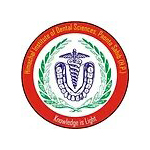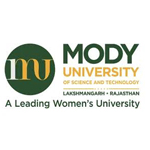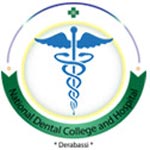
MVSc in Veterinary Science
Medium
Medium
1.5 LPA - 3.1 LPA
2.6 LPA - 5.2 LPA
6.2 LPA - 9.2 LPA
Table of Contents
- MVSc Veterinary Medicine Course Highlights
- About Master of Veterinary Science
- MVSc Course Description
- What is the Master of Veterinary Science [MVSc]?
- MVSc Eligibility Criteria
- MVSc Veterinary Medicine Course Scope (Job Types)
- MVSc Veterinary Medicine Syllabus
- MVSc Veterinary Medicine Course Comparison
- Salary Trends
- MVSc Veterinary Medicine FAQs
MVSc Veterinary Medicine Course Highlights
| Course Level | Post Graduate Course |
| Full-Form | Masters of Veterinary Science in Veterinary Medicine |
| Duration | 2 years |
| Examination Type | Semester Examinations |
| Eligibility | candidate with Bachelor’s degree B.Sc. / B.V.Sc in the relevant field from a recognized university with a minimum 60% aggregate marks |
| Admission Process | Merit-Based/ Entrance Examination |
| Course Fee | INR 9,000 to 1 Lac |
| Average Salary | INR 2 to 15 Lacs |
| Top Recruiting Areas | Veterinary Medicine Stores, Zoo and Wildlife Parks, Veterinary Pharma Companies, Animal Health Trust, Animal Welfares, Public Health Centers, Veterinary Colleges, Universities |
| Job Positions | Medical Representative, Veterinary Surgeon, Veterinarian, Sales, and Marketing Executives, Lecturer, Teacher |
About Master of Veterinary Science
Veterinary Science is the branch of science that majorly covers the diagnosing, treating, curing, and prevention of disease or injury in nonhuman animals or birds. The subject covers the study of physiology, prevention, and treatment of both domestic as well as wild animals in a broader way.
MVSc Course Description
MVSc is a postgraduate Master's degree of 2 years course curriculum divided into 4 semesters. This is the specialized medical branch dedicated to the study of nonhuman animal health. The maximum duration to complete this course is 4 years.
Few of the Universities offer this program through distance learning along with full-time and part times course curriculum.What is the Master of Veterinary Science [MVSc]?
This is the only branch that deals with the study of the health-related medical system of nonhuman animals. It helps in diagnosing, treating, curing, and preventing domestic and wild animals from disease and disorders.
Apart from treatments, these veterinary professionals are trained to perform surgery and provide vaccination to animals. This branch is also helpful for human food safety from diseases caused by animals and provides basic medical research upon animals for human safety. This gives ample scope for research to the candidate through practical training modules.
MVSc Eligibility Criteria
- Only a BVSc. Or AHB graduate from a recognized University is eligible to enroll for MVSc.
- The minimum aggregate of Veterinary graduates should be 55 %.
- Admission is based on marks obtained in Postgraduate Entrance Examination.
Get Admission in MVSc in Veterinary Science Course
Apply NowMVSc Veterinary Medicine Course Scope (Job Types)
1)Private Sector Career Options
- Companion animal veterinarian
- Equine veterinarians
- Food animal veterinarians
- Food safety and inspection veterinarians
- Research veterinarians
2)Private Employment Area
- Aviaries
- wildlife sanctuaries
- zoological parks
- Agriculture sector
- poultry farms
- veterinary hospitals and clinics
3)Public Employment Area
- government animal husbandry departments
- veterinary hospitals and clinics and Other Government Services
MVSc Veterinary Medicine Syllabus
| YEAR I | YEAR II |
|---|---|
| Diagnostic Procedures and Interpretations | Avian Medicine |
| Internal Diseases of Ruminants | Diseases of Laboratory and Zoo Animals |
| Infectious Diseases of Ruminants | Veterinary Critical Care |
| Canine and Feline Medicine | Clinical Practice |
| Equine Medicine | Seminar |
| Porcine Medicine | Special Problems |
| Metabolic Diseases in Animals | Masters Research |
MVSc Veterinary Medicine Course Comparison
MVSc Veterinary Medicine and MVSc Animal Nutrition are two animal medical research courses: however, the course structure is very different for both the courses.
With a different subject approach in both the courses, below is the table differentiating both on various aspects:-
| MVSc Veterinary Medicine | MVSc Animal Nutrition |
|---|---|
| Qualification Masters of Veterinary Science in Veterinary Medicine |
Qualification Masters of Veterinary Science in Animal Nutrition |
| Course Overview MVSc Veterinary Medicine deals with the study of animals and the application of various medical methods to treat dental, therapeutic, diagnostic, medical, and surgical problems. |
Course Overview MVSc Veterinary Medicine is a 2-year veterinary science course that deals with nutrients in animals and other biological sciences, the application of nutritional sciences to health, the digestive process, and the welfare of companion pet animals. |
| Eligibility Graduation |
Eligibility Graduation |
| Admission Process Entrance examination |
Admission Process Entrance examination |
| Average Annual Fee INR 9,000 to 1 Lac |
Average Annual Fee INR 8,000 to 3 lakhs |
| Average Annual Salary INR 2 to 15 Lacs |
Average Annual Salary INR 2 to 10 lakhs |
| Top Job Profiles Medical Representative, Veterinary Surgeon, Veterinarian, Sales, and Marketing Executives, Lecturer, Teacher |
Top Job Profiles Animal dietician, Animal nutritionist, Veterinary technician, Dairy consultant |
Salary Trends
| Master of Veterinary Science [MVSc] | Entry Level Salary (LPA) | Medium Salary (LPA) | Maximum Salary (LPA) |
|---|---|---|---|
| Companion animal veterinarian | 1.5 | 2.6 | 6.2 |
| Equine veterinarians | 2.7 | 4.4 | 7.1 |
| Food safety and inspection veterinarians | 2.2 | 4.8 | 9.2 |
| Research veterinarians | 3.1 | 5.2 | 8.2 |
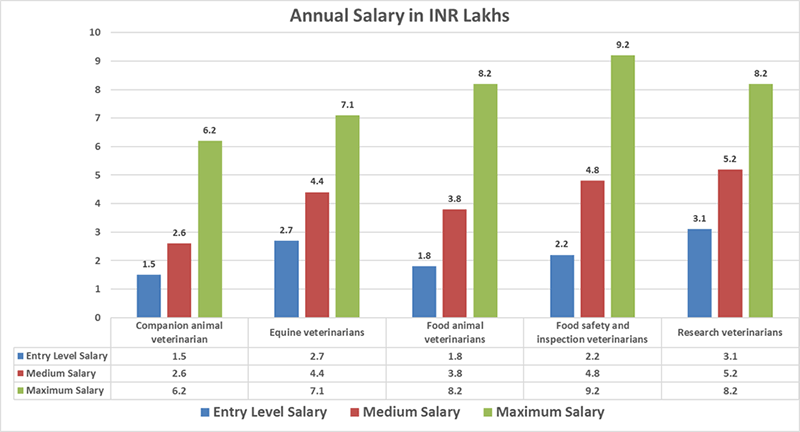
MVSc Veterinary Medicine FAQs
Ques. What can be done with MVSc Veterinary Medicine?
Ans. After MVSc Veterinary Medicine, one can work in the private or government sector as an Animal Nutritionist, Animal Dietician, Medical Representative, Veterinary Surgeon, Veterinarian, Sales, and Marketing Executives, Lecturer, Teacher, etc.
Ques. Is MVSc Veterinary Medicine hard?
Ans. Veterinary Science is an extensive field with basic fieldwork required. It requires basic knowledge of all the agricultural commodities, their species, and technical aspects of the same. However, it is not difficult for a person with a biology background.
Ques. Is MVSc Veterinary Medicine all about animal health?
Ans. MVSc Veterinary Medicine deals with the study of animals and the application of various medical methods to treat dental, therapeutic, diagnostic, medical, and surgical problems. With a research-based approach in the course MVSc Veterinary Medicine, a student gets an opportunity to research anatomy, marine medicine, anatomical pathology, bacteriology, virology, clinical pathology, and morphological pathology.
Ques. What are the advanced courses which can be pursued after MVSc Veterinary Medicine?
Ans. After successful completion of MVSc. Veterinary Medicine, a student can pursue MPhil or Ph.D. in a similar specialization.
Ques. How common is MVSc Veterinary Medicine?
Ans. MVSc Veterinary Medicine is not very common in India but is gaining popularity with time. However, MVSc Veterinary Medicine holds significant importance internationally.
Ques. What are the growth prospects after completing MVSc Veterinary Medicine?
Ans. In India, Veterinary Medicine is gaining importance with time. It is estimated by various agencies that the growth of this field is likely to be doubled in just 10 years. Hence, a Veterinary Medicine expert is likely to earn more with time and knowledge.
Ques. What is the basic fee structure in MVSc Veterinary Medicine?
Ans. The average annual fee for the MVSc Veterinary Medicine course varies from INR 9,000 to 1 Lac based on the college.
Ques. What are the documents required for admissions in MVSc Veterinary Medicine?
Ans. Following documents are required for admissions in MVSc Veterinary Medicine:-
- School leaving certificate
- Transfer certificate
- Domicile certificate/ residential proof or certificate
- Provisional certificate
- Character certificate
- Scheduled Caste/ Scheduled Tribe/Other Backward Caste certificates
- Proof of disability (if any)
- Migration Certificate
- Passing certificate/ Degree certificate
- Age proof
- No objection Certificate
Ques. Is it compulsory to have biology as a main subject in the 10+2 examination for MVSc Veterinary Medicine?
Ans. Yes, it is compulsory to have biology as the main subject to pass the eligibility criteria for admission in MVSc Veterinary Medicine.

